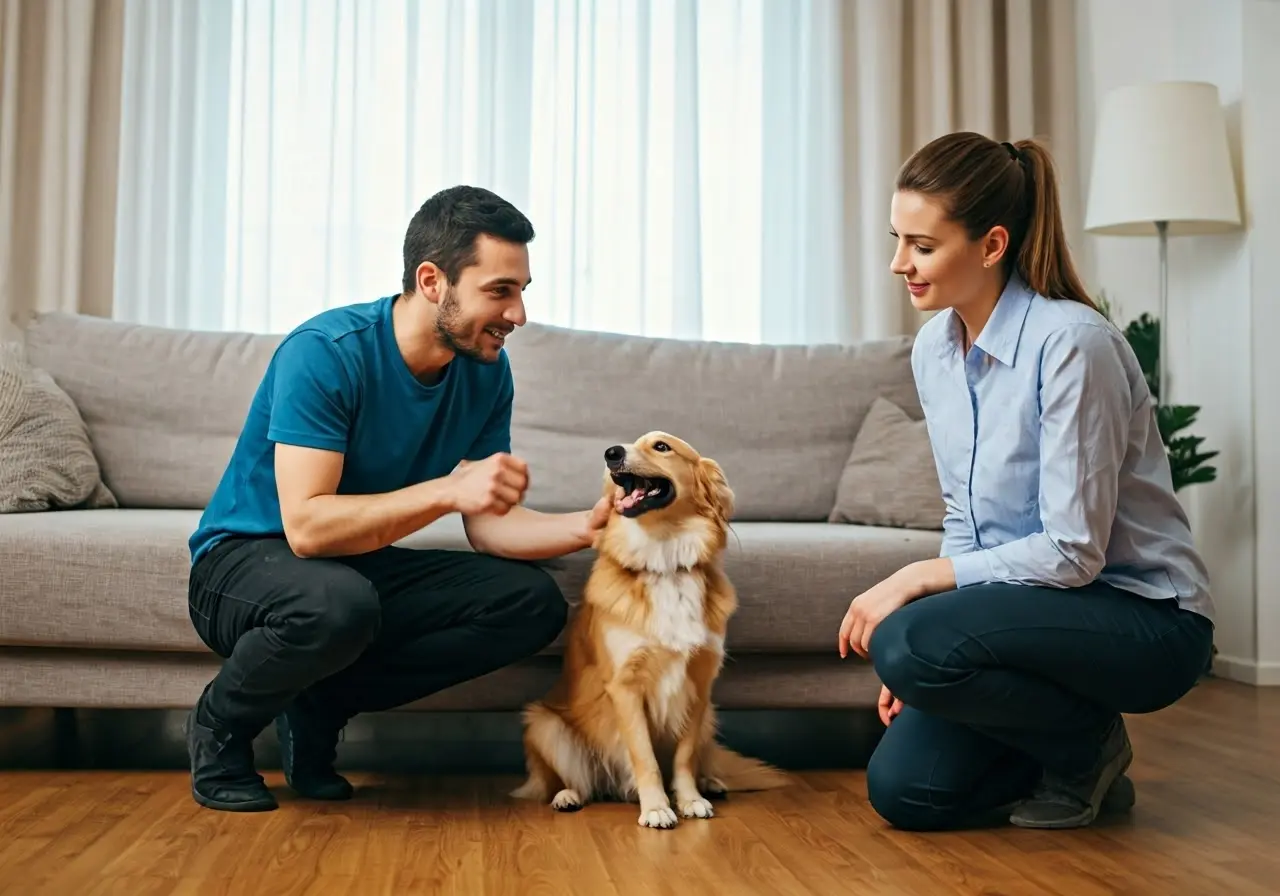Understanding your dog’s behavioral problems and finding effective solutions can be a complex task. Home visits may offer a unique approach to addressing these issues right where your dog feels most comfortable and safe.
What Are Home Visits for Dog Training?
Home visits for dog training involve a professional visiting your home to observe and address your dog’s behavioral issues in their natural environment. This approach allows trainers to see firsthand how your dog’s behavior is influenced by the surroundings and daily interactions within your household.
These visits can range from single sessions to ongoing training programs, where the trainer works closely with you and your dog to achieve desired behavior changes. The focus is often on reinforcing positive behaviors in places where your dog naturally spends the most time, ensuring that the training is both practical and effective.
For many dogs, the familiar setting of their home reduces the anxiety typically associated with traditional training classes, which can often be overwhelmed by new environments or the presence of other animals. By choosing professional dog training in your home, you provide a sense of continuity and comfort that accelerates learning and retention.
Benefits of Home Visits
Home visits offer personalized attention, reduce stress for your dog, and provide realistic training within the environment where problems occur. This tailored training ensures that techniques are specifically aligned with your dog’s unique challenges.
In-home training is an excellent choice for dog owners who lead busy lives and need the flexibility that fits their schedule. It eliminates the need to travel and allows for training sessions that are scheduled at your convenience, enhancing the likelihood of consistent attendance.
One of the primary advantages is the ability for trainers to work on behaviors as they occur, addressing challenges like barking at the doorbell or jumping on guests in real-time. This hands-on approach leads to faster and more apparent outcomes, as your dog learns appropriate responses immediately in its usual scenario.
Common Behavioral Issues Addressed
Trainers can tackle a variety of issues such as aggression, excessive barking, separation anxiety, and house training during home visits. These sessions are particularly beneficial for dogs who may struggle in group settings due to anxiety or reactive behaviors.
Dogs that display aggression towards other dogs or people, or show signs of separation anxiety, often benefit from tailored in-home training. This allows the trainer to employ specific strategies that are best suited to your dog’s unique temperament and the layout of your home environment.
Issues such as excessive barking and difficulty with house training are best addressed in the setting where they occur. By observing your dog’s behavior in real life situations, trainers can offer practical solutions that fit seamlessly into your daily routine.
How Do Home Visits Work?
The trainer will observe your dog’s behavior, provide feedback, and implement training techniques tailored to your dog’s specific needs. Each visit is an opportunity for you to discuss concerns and receive personalized advice on how to address them.
Home visits typically start with an initial assessment, where the trainer will gather information about your dog’s past behaviors, triggers, and your goals for training. This first session is crucial for formulating a custom plan that targets your dog’s specific challenges.
Throughout subsequent visits, you’ll see the application of a comprehensive approach: trainers may use positive reinforcement techniques to shape behavior, helping your dog build good habits. Furthermore, they offer guidance on maintaining consistency to ensure long-term success.
Choosing the Right Trainer
Look for a certified, experienced trainer who uses positive reinforcement techniques and has a good rapport with both you and your dog. Ensure they have relevant certifications and proven experience with successful home visits.
The right trainer for your home visit should not only have a strong background in dog psychology but also demonstrate patience, empathy, and excellent communication skills. These traits are essential in creating a trusting relationship between the trainer, you, and your dog.
When selecting a trainer, seek testimonials or reviews from previous clients. This firsthand insight can reveal how effective the trainer is at addressing behavioral issues, as well as their professionalism and dedication to the welfare of both the dog and owner.
Preparing for a Home Visit
Prepare a list of concerns, clear the training area, and ensure all necessary family members are present during the session. This preparation helps maximize the value of the session and keeps everyone involved in the training process.
Create a distraction-free environment by minimizing noise and ensuring your dog is well-rested and fed before the session. Small measures like these can play a significant role in keeping your dog focused and responsive during training.
Before the visit, it’s helpful to discuss with the trainer any specific goals or behaviors you wish to address. Clear communication from the beginning sets the foundation for a successful and effective training journey.
Home Visits: A Tailored Approach to Better Behavior
Home visits can play a crucial role in addressing and improving your dog’s behavioral issues. By tackling problems within the comfort of your home, both you and your dog can experience a more relaxed, understanding, and personalized approach to training.


